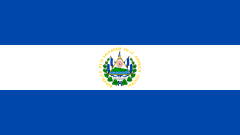Pricing is Complicated
Published 03.02.23, by Quixote Center
By Kim Lamberty
I have 15 years in the coffee business, leading a small non-profit (Just Haiti) that exports coffee from Haiti. Our goal: The producers make enough money to support their families, free from dependence on outside aid. I have learned a lot over the years. To state the obvious: pricing is key. On the international commodity market, coffee goes for about $1.90 a pound, which is not nearly enough to sustain a small-scale producer. Just Haiti pays nearly triple that, and I still feel like it is not enough.
There is a limit to how much we can get for the coffee in the U.S. Competition keeps prices down for the consumer; it also keeps income down for the producer. In a competitive market, to keep income up for the producer, Just Haiti can only operate as an all-volunteer organization. We take nothing so that our producers can support their families through their own labor.
Just Haiti is a labor of love for the nine of us that form its core operating board. Like Quixote Center, we are inspired by Christian tradition that invites us to sacrifice for the sake of those more vulnerable. At the same time, everyone needs to earn a decent living, and in an ideal world, we shouldn’t have to volunteer so that our suppliers can make ends meet.
Inflation further complicates this picture. Higher commodity prices can increase household income for producers dependent on commodities to support themselves. On the other hand, small-scale farmers, who make up the majority of people living under the poverty level of $2.15 per day, spend an outsized amount of their income on food and basics, such as gas, meaning that higher commodity prices tend to increase poverty overall. The usual solution for this is to augment income with cash transfers and food assistance, but this does not solve the problem of how to diminish overall dependency on aid.
Work is important. Our work gives us dignity, independence, fulfillment. People become aid-dependent when they can’t make ends meet through working. They also migrate, contribute to environmental destruction, or join armed groups when they can’t come up with a better option to support their families.
Most revealing is what inflation does to corporate profits. Quarterly profits in the U.S. nonfinancial sector have “surged by more than 80 percent over the last two years, from around $1.2 trillion to more than $2 trillion” in the third quarter of 2022 (The Hill). Companies pass higher commodity costs onto consumers, but they also seem to take advantage of consumer expectations to raise prices beyond costs, in order to increase their own profits.
I want to live in a world where people cannot become wealthy from the labor of others, if the laborer can barely survive. The solution is partly pricing, but pricing is complicated. Higher prices for producers would need to be coupled with lower wages and returns for the wealthiest, as well as with corporations who feel accountable not just to shareholders, but also to producers and laborers. This is not the world we live in. In our world, consumer pressure keeps retail prices down, and shareholder pressure keeps corporate profits up. Let’s be honest: In the United States, most of us benefit from this system, and we have exported much of the poverty that comes from being a producer or laborer.
This is a systemic issue and requires a systemic solution. But there are some things we can do as individuals. We can choose to invest in companies that provide strong wages for their employees, including offshore contractors, and shop at those companies as well. These include most fair trade companies and B Corps. We can commit to educating ourselves and our communities about these issues and, to the best of our ability, using our power as consumers and shareholders to make a difference.
Quixote Center is deep in conversation with our partners in Haiti to invest in expanding small business opportunities so that small-scale producers can bring in more cash. This is another part of the solution: Investing our aid dollars in community-led small businesses that keep the profits in the community. This takes time, organizing, and planning, and is harder to fund than simple aid.
We are working on it.
Click HERE to support the Quixote Center's mission.
Further Reading
- https://thehill.com/business/3756457-corporate-profits-hit-record-high-in-third-quarter-amid-40-year-high-inflation/.
- https://www.brookings.edu/blog/future-development/2022/03/18/inflation-could-wreak-vengeance-on-the-worlds-poor/.
- https://www.bcorporation.net/en-us/find-a-b-corp/.
- https://www.fairtradefederation.org/.
- https://www.justhaiti.org/.



